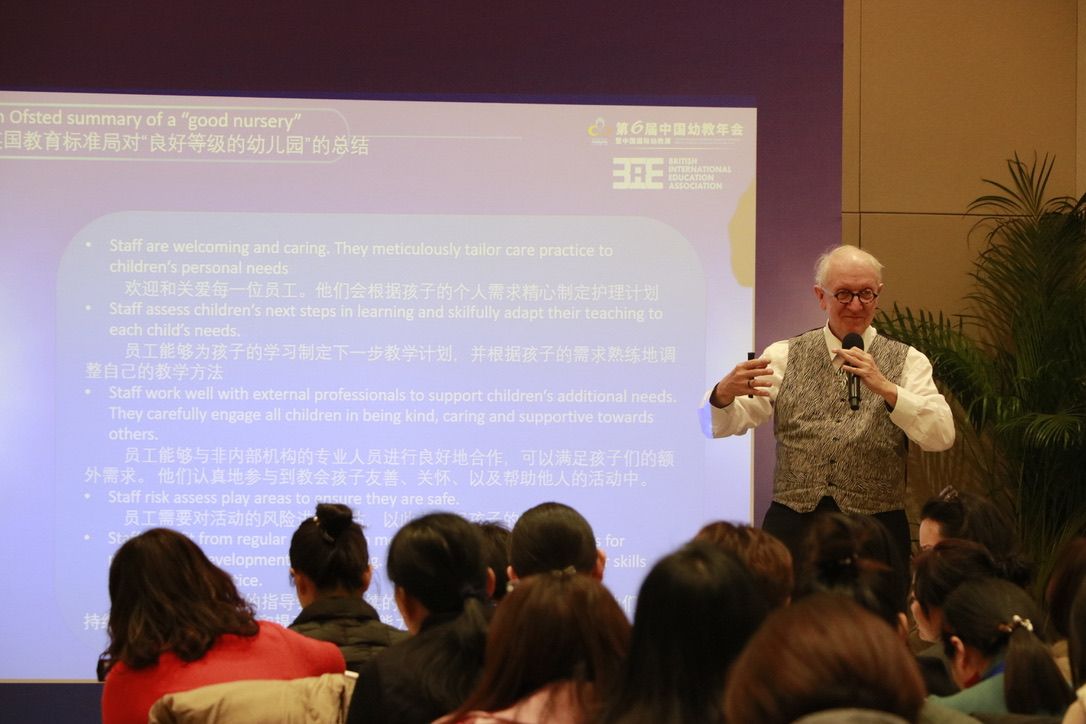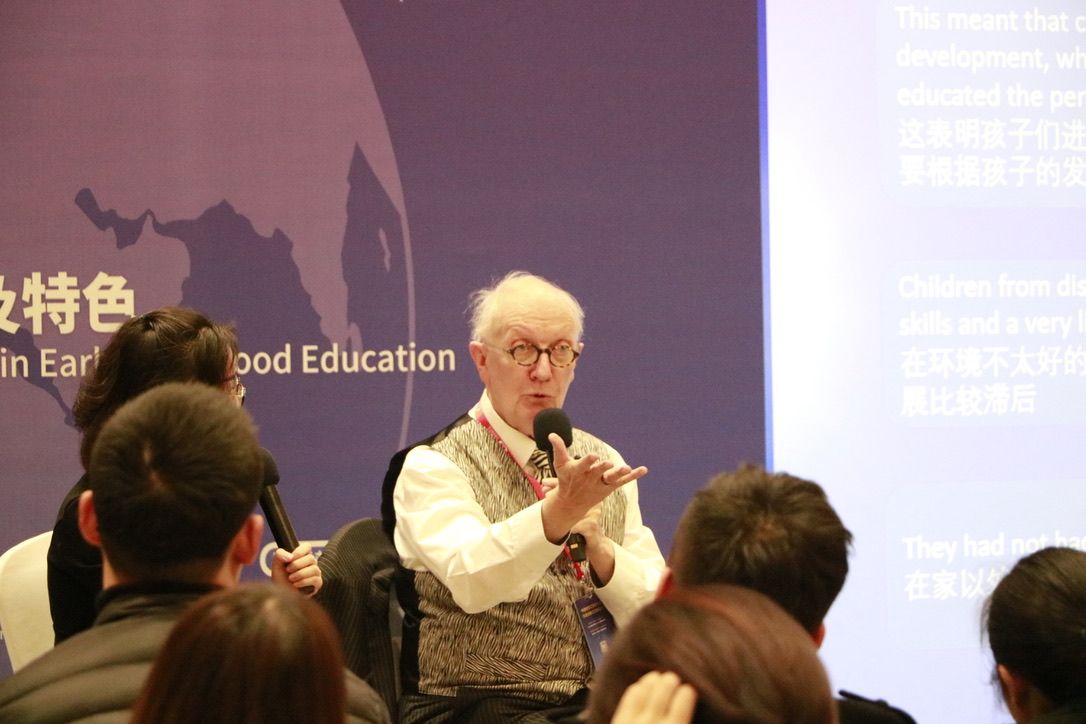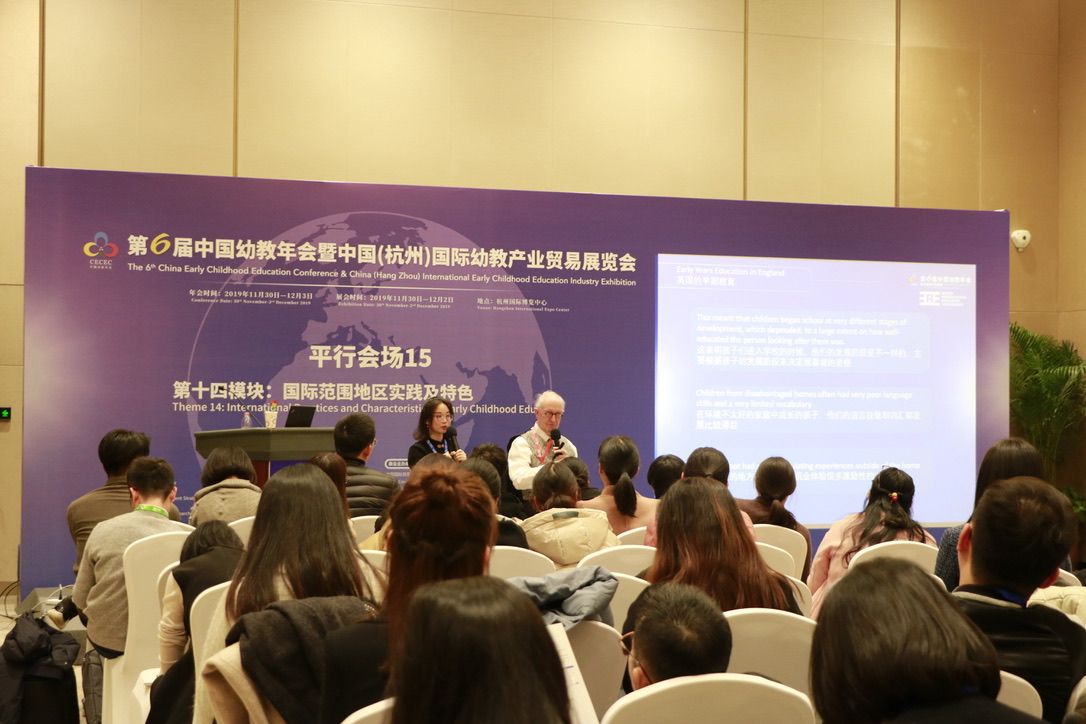On November 30th 2019, the BIEA was invited to attend the 6th China Early Years Education Annual Conference, which brings renowned early years education experts and scholars together. Chris, our British EYFS expert, delivered talks on the techniques used to conduct nursery evaluation in the UK, and on the historical development of British early years education.
 In the former, he stressed that the evaluation of British nurseries focuses on the inspection framework and plays an important role in improving the quality of teaching. This is because the inspection framework is accredited by the British Office for Standards in Education – Ofsted – an institution with the utmost credibility. Chris wrapped up his speech by sharing how Ofsted defines a “good” nursery, and the core elements of how a nursery can achieve its “outstanding” rating. The latter talk gave them a comprehensive history of EYFS in the UK.
In the former, he stressed that the evaluation of British nurseries focuses on the inspection framework and plays an important role in improving the quality of teaching. This is because the inspection framework is accredited by the British Office for Standards in Education – Ofsted – an institution with the utmost credibility. Chris wrapped up his speech by sharing how Ofsted defines a “good” nursery, and the core elements of how a nursery can achieve its “outstanding” rating. The latter talk gave them a comprehensive history of EYFS in the UK.
 At the conference, it was clear that China’s early years education sector is undergoing tremendous development. This is in part due to the impact of current policies and the demand for high-quality education; nurseries and other early years institutions have subsequently been afforded new opportunities, but with them there come new challenges. For many Chinese nurseries, implementing British EYFS is undoubtedly one of the best solutions to cope with the situation. However, how can such a distinct system be implemented? How do these nurseries get an authoritative endorsement? How will they get parental support? These are the main questions that puzzle these institutions.
At the conference, it was clear that China’s early years education sector is undergoing tremendous development. This is in part due to the impact of current policies and the demand for high-quality education; nurseries and other early years institutions have subsequently been afforded new opportunities, but with them there come new challenges. For many Chinese nurseries, implementing British EYFS is undoubtedly one of the best solutions to cope with the situation. However, how can such a distinct system be implemented? How do these nurseries get an authoritative endorsement? How will they get parental support? These are the main questions that puzzle these institutions.
 Based on the high recognition of the British EYFS education framework, many teachers attended the conference to learn more about how it could be implemented in China. Feng Yang, the Head of BIEA’s China Office, gave his thoughts on how excellent the EYFS system is to participating teachers; what its standards are; how nurseries implement it; the current stages of EYFS implementation in China; and the contents of the 0-3 years old and 3-5 years old framework, which is popular amongst members of BIEA Early Years League (E-League).
Based on the high recognition of the British EYFS education framework, many teachers attended the conference to learn more about how it could be implemented in China. Feng Yang, the Head of BIEA’s China Office, gave his thoughts on how excellent the EYFS system is to participating teachers; what its standards are; how nurseries implement it; the current stages of EYFS implementation in China; and the contents of the 0-3 years old and 3-5 years old framework, which is popular amongst members of BIEA Early Years League (E-League).
